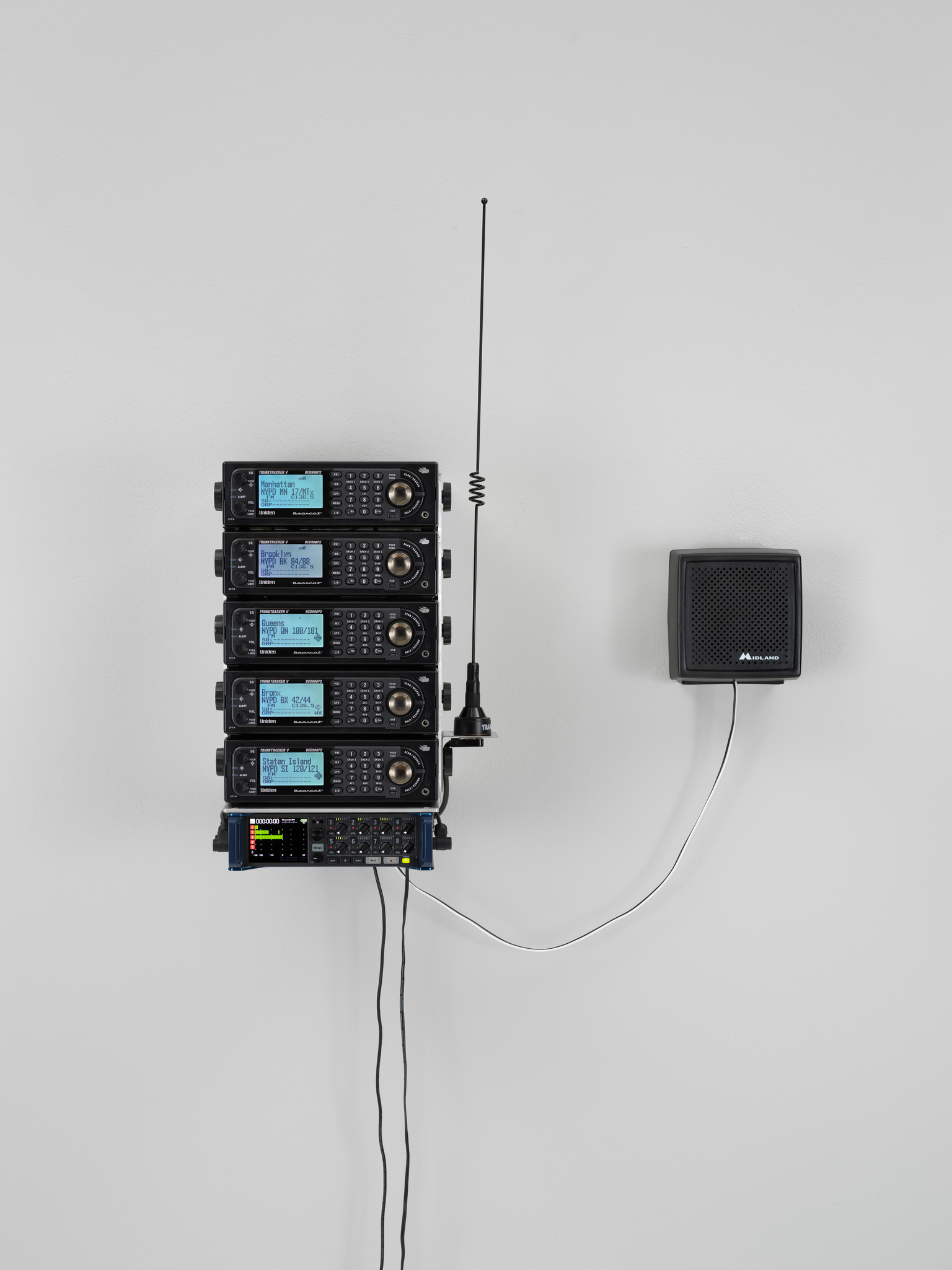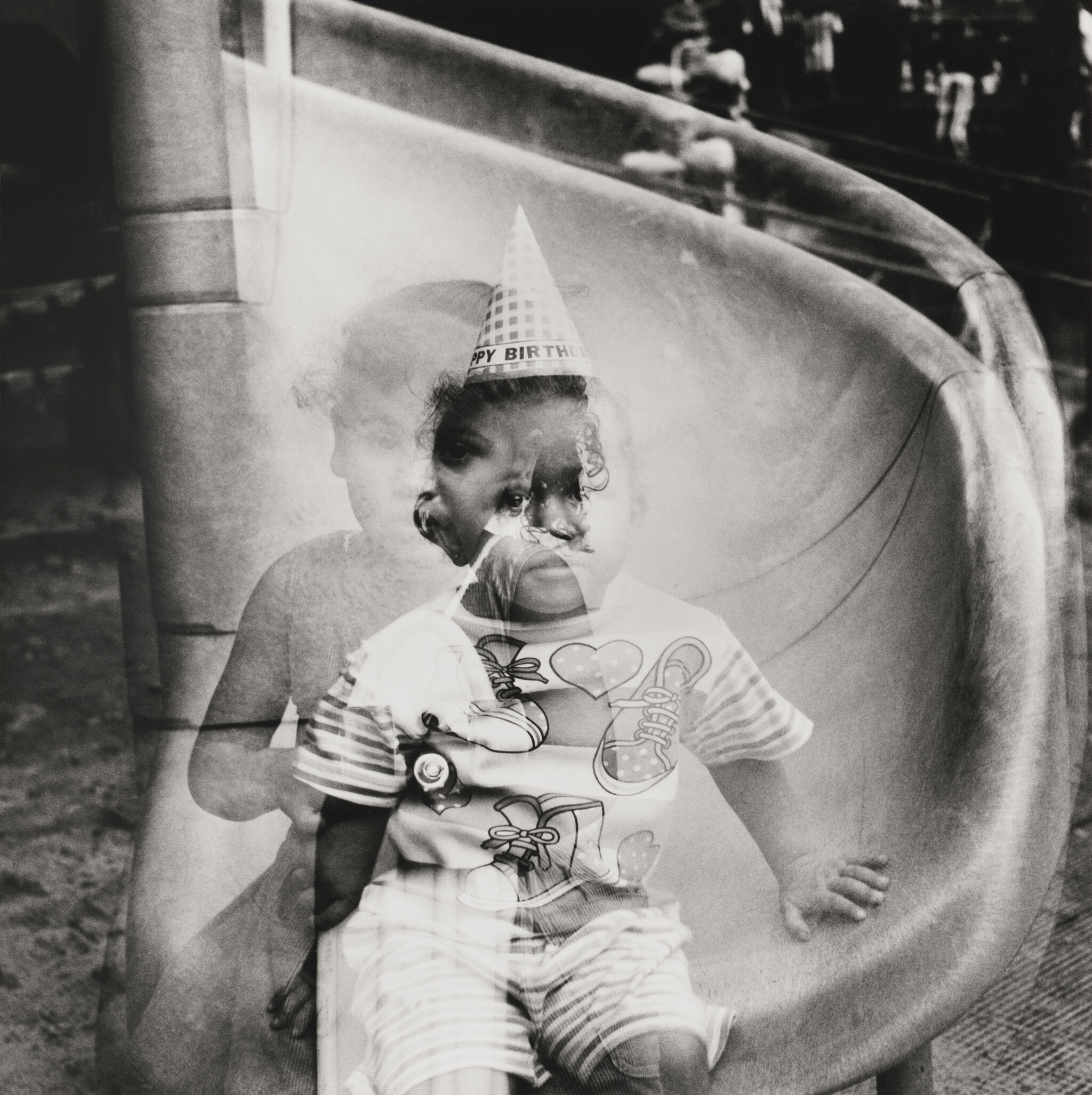Not on view
Date
2021
Classification
Sculpture
Medium
Recording of NYPD radio communications in Manhattan, Recording of NYPD radio communications in Brooklyn, Recording of NYPD radio communications in the Bronx, Recording of NYPD radio communications in Queens, Recording of NYPD radio communications in Staten Island / Citywide
Dimensions
Overall: 70 × 27 1/4 × 8 3/4in. (177.8 × 69.2 × 22.2 cm)
Accession number
2022.60a-i
Credit line
Whitney Museum of American Art, New York; purchase, with funds from the Painting and Sculpture Committee
Rights and reproductions
© Cameron Rowland
API
artworks/65508
The NYPD does not retain publicly accessible recordings of its two- way radio communications. These communications can be accessed live using a UHF radio scanner. Due to the amount of simultaneous radio communication throughout the city, multiple scanners are necessary to receive all transmissions. Public access to recordings of these transmissions allows these internal communications to be reviewed collectively. When Life and Property is exhibited, recordings are produced continuously. Each day the prior 24 hours of recordings are made publicly accessible on the exhibitor’s website. The recordings for each day of the exhibition are hosted as documentation.
Looking out, documenting, and inverting surveillance have always been practiced by Black targets of policing. Internal documentation of the police that is produced by the police is only available at the discretion of the police. External documentation of the police is essential to understanding what the police actually do.
The radio communications of the NYPD make evident that the vast majority of police dispatches are in response to 911 calls reporting perceived disorder. The dispatches show how frequently callers report people to the police for “loitering,” “being disorderly,” “refusing to leave the business,” “panhandling,” “drinking and gambling,” “harassment,” “trespassing,” “disputing,” and “being uncooperative.”
The purpose of calling the police is to subject the accused to scrutiny, dispossession, incarceration, and death by enforcement. Calling the police to stop violence discounts the violence inflicted by the police. Survived and Punished organizes in support of incarcerated survivors of domestic and sexual violence. Their publication Research across the Walls details that:
In 2000, a study of domestic-violence survivors under New York State’s mandatory arrest policies found that survivors of domestic violence were arrested in 27 percent of cases reported through a domestic violence hotline…[A] decade-long study found that a law enforcement officer is charged with sexual misconduct every 5 days, and that motorists, crime victims and witnesses and young people are the most frequent targets.
As a paramilitary institution, the primary object of the police is the protection of white citizens and the property they own. White citizenship remains the benchmark for legal protection the United States. 42 USC § 1981, “Equal rights under the law,” last updated in 1991, states that:
(a) Statement of equal rights. All persons within the jurisdiction of the United States shall have the same right in every State and Territory to make and enforce contracts, to sue, be parties, give evidence, and to the full and equal benefit of all laws and proceedings for the security of persons and property as is enjoyed by white citizens, and shall be subject to like punishment, pains, penalties, taxes, licenses, and exactions of every kind, and to no other.
The designation of who the police are sworn to protect is determined by the de jure and de facto withholding of citizenship. The NYPD’s mission statement openly states that its protection is contingent on citizenship as it pledges to:
Protect the lives and property of our fellow citizens and impartially enforce the law.
—Cameron Rowland
Inheritance, June 2023–February, 2024, Life and Property recordings

